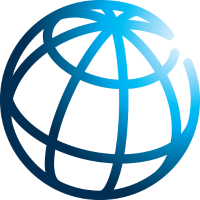The World Bank Statement on Women Entrepreneurs Finance Initiative (We-Fi)
WASHINGTON, October 12, 2017 ‒ The Women Entrepreneurs Finance Initiative (We-Fi) donor countries today issued the following statement:
It is with great pleasure that we officially launch the Women Entrepreneurs Finance Initiative (We-Fi), following the inaugural meeting of its governing council.
Just three months ago, at the G20 leaders’ summit in Hamburg, Germany, we announced the creation of We-Fi, an innovative new facility to advance women’s entrepreneurship and help women in developing countries increase their access to the finance, markets, technology, and networks necessary to start and grow a business. We-Fi aims to leverage donor funding to unlock more than $1 billion in International Financial Institution (IFI) and commercial financing by working with financial intermediaries, funds and other market actors.
The response from the international community has been remarkable and immediate, demonstrating the importance of increasing women’s economic empowerment and scaling up efforts to help women open and grow businesses. We-Fi already has more than $340 million in donor commitments – exceeding our target by $100 million. The World Bank Group was invited to create the facility by the United States and Germany. We-Fi is a collaboration among the governments of Australia, Canada, China, Denmark, Germany, Japan, Netherlands, Norway, Russian Federation, Saudi Arabia, Republic of Korea, United Arab Emirates, the United Kingdom, and the United States.
We-Fi fills an important gap and gives us a major global platform to increase access to capital. It is the first significant fund committed to aligning country-level reforms with private investment. While we invest in projects and programs that support women-led businesses, we will work with governments to address legal and regulatory barriers that stifle women entrepreneurs and women-led firms. We-Fi will build on and implement lessons on what works to start and grow sustainable female owned/led firms, collect key data from the public and private sector, and support innovation and learning for results at scale.
Currently, 70 percent of women-owned, small and medium-size businesses in the developing world can’t access the financing they need. They are either shut out of financial institutions or can only get high-interest, short-term loans, resulting in a nearly $300 billion annual credit deficit to women-owned businesses. They also face other constraints, including limited access to technology, a lack of networks and knowledge resources, and legal and policy obstacles to business ownership and development.

